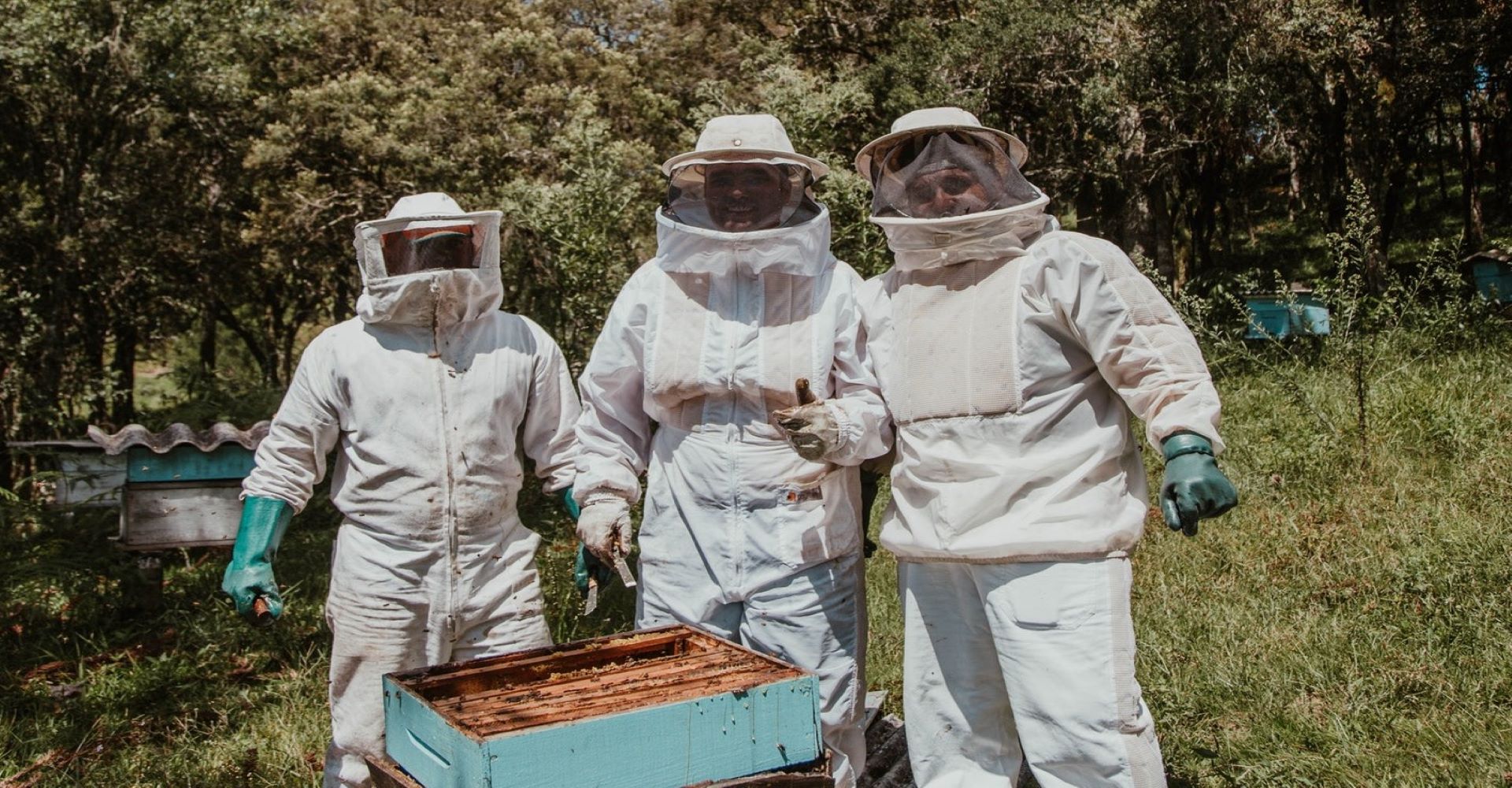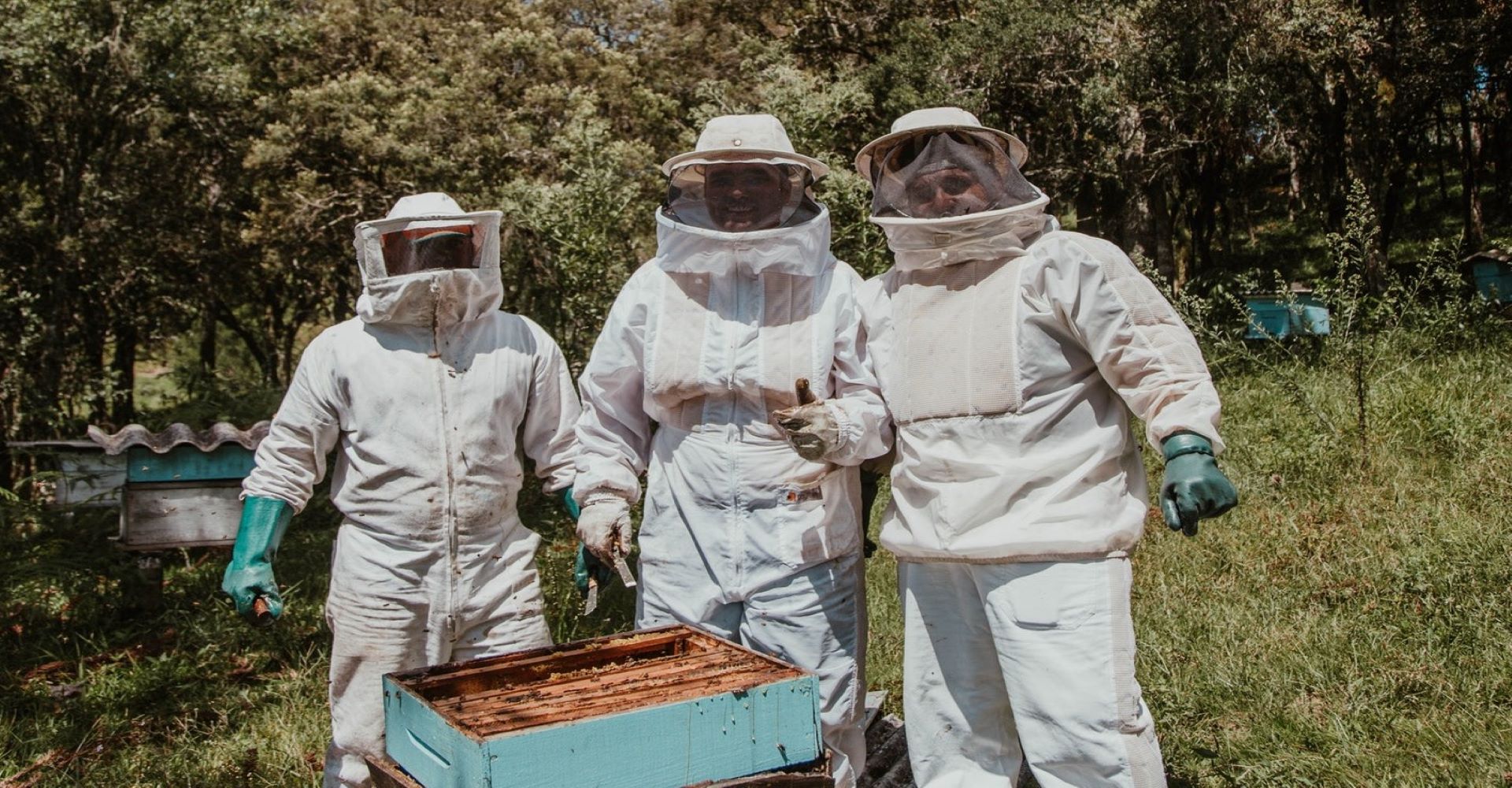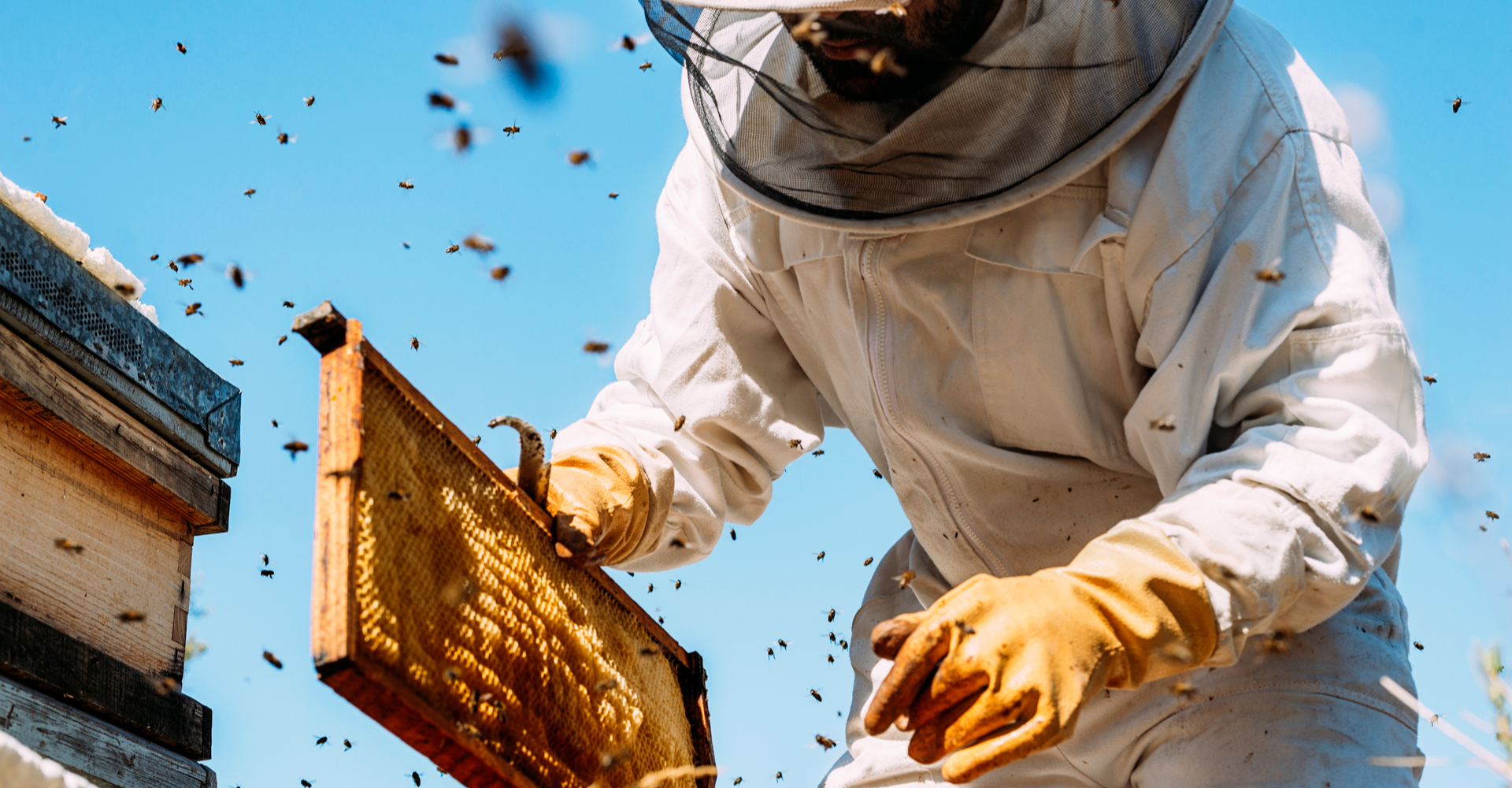Why We Need More Honeybee Veterinarians
Honeybees are the most important food animals on the planet, and they need our help now more than ever.
2 min read
Abby Crimm : October 24, 2019 11:00:00 AM PDT

We'd be in real trouble without pollinators, and it's veterinary medicine's job to take care of them. How can veterinary professionals do their part?
The world is facing a potential problem: As the population of the world increases every year, people will need more food. To produce the amount of agriculture to feed these people and food animals, we need pollinators. For a while, there wasn’t an emphasis on protecting these pollinators—bees, beetles, butterflies, etc.—that are so important to our way of life.
Dr. Terry Kane, the A2 Bee Vet, is a veterinarian and beekeeper working to increase veterinary education about bees to positively impact hive health across the country. In this Quick Cup of Knowledge, Dr. Kane talks to Dr. Natalie Marks about what veterinarians can do to help beekeepers maintain healthy hives.
Bees as Part of a Solution to Antimicrobial Resistance
Because she worked in Congress on the Farm Bill and the Food Safety Modernization Act, Dr. Kane is especially aware of the global crisis in antimicrobial resistance. She knew that if there wasn’t voluntary compliance to reduce medically important antibiotics in our food animal supply, government regulations were inevitable.
When regulation did come, those working with poultry, swine, and dairy products expected these changes. However, these changes to reduce antibiotics in the food supply as it involved bees came as a surprise to honeybee professionals and to veterinarians. (Dr. Jeffrey Applegate describes the recent changes in veterinary medicine regarding bees due to new FDA policy in this blog post.)
So, what can veterinarians do to help and fulfill this new role, according to Dr. Kane?
#1: Personally Encourage Native Pollinators
When asked about ways veterinarians can help the bee population, Dr. Kane somewhat jokingly says not to mow your dandelions down! It’s funny because it seems so simple, but the little things you can do to maintain or create habitats for native pollinators starts in your own backyard.
Leaving brush piles, leaving old wood, and making or buying “bee hotels” are some of the things we can start to do to support diminishing pollinator populations in our area.
#2: Go to Bee School
The second most important thing veterinarians can do is receive the appropriate training to feel confident working with hives. Go to bee school!
There are plenty of online training programs like Cornell’s if that works best for you. Hands-on labs are teaching veterinarians how to use equipment and handle a hive at WVC’s Annual Conference, for example. There’s nothing like hands-on practice when it comes to working with bees.
And yes—you probably will get stung. Like getting kicked by a horse or scratched by a cat, it’s a natural risk of the job.
#3: Become a Beekeeper
If you discover that you’re an avid bee lover like Dr. Kane, you may want to consider becoming a beekeeper yourself in some capacity. The experience and knowledge you gain from doing hands-on labs with hives will only increase with the practice and exposure you receive by maintaining your own hive.
There are rooftop hives in almost every city as beekeeping becomes more popular, along with veterinarians to care for them. Becoming involved in those community projects will help build experience and your skills.
Veterinarians and veterinary technicians have a new species to learn about and help. It's exciting that not only are more veterinary professionals discovering a new interest, but also that their work positively affects us all as bees continue to pollinate and make our food sources accessible.
Stay in the Know!
This bee lab described by Dr. Kane was given at the 91nd Annual Conference this year. Check out similar educational sessions and more at the next Annual Conference in 2020!
Click the link to subscribe to our YouTube channel or check out our WVC Resource Library full of great podcasts, videos, and digital downloads!
Disclaimer
Content may contain advertising and sponsorships. Advertisers and sponsors are responsible for ensuring that material submitted for inclusion is accurate and complies with applicable laws. We are not responsible for the illegality of any error, inaccuracy, or problem in the advertiser’s or sponsor’s materials.
Advertising material and/or opinions are not are not a reflection on Viticus Group.

Honeybees are the most important food animals on the planet, and they need our help now more than ever.

Beekeeping has been around for a while, but bees have successfully caught the attention of the veterinary community within the last two years.

On March 23, eleven veterinary leaders gathered and collaborated during an online summit organized by Viticus Group to inform the veterinary...